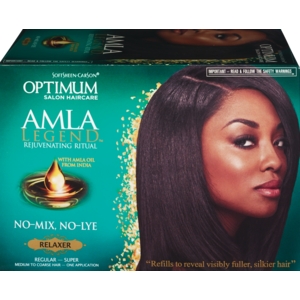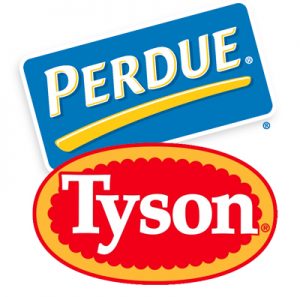 Top Class Action Lawsuits
Top Class Action Lawsuits
Ford Losing Its Touch? Ford Motor Co. got hit with a defective products class action lawsuit filed by customers who allege the automotive maker sold vehicles with faulty touchscreen systems. Great! The last thing you want to try and figure out while you’re driving…why the technology isn’t working as advertised.
The Ford class action lawsuit, which represents no less than nine classes, alleges the defect resulted in the failure of safety functions such as rear view cameras and functioning navigation systems.
U.S. District Judge Edward M. Chen has certified nine different classes of Ford owners, divided by state: California, Colorado, Massachusetts, New Jersey, North Carolina, Ohio, Texas, Virginia and Washington. Each class brings its own set of claims related to breach of warranty, unfair trade practices, fraudulent concealment and other various other allegations.
According to plaintiffs, the MyFord Touch infotainment touchscreen systems often crash or freeze while the vehicle is in motion. The systems were introduced into Ford vehicles in 2010 with the promise of touch screen operating of audio and navigation systems, the ability to make phone calls, manage climate systems and play music from their smartphones. However, the systems have encountered a lengthy list of problems. In 2010, according to the lawsuit, Ford reported roughly 400 problems for every 1000 vehicles, which was an improvement from earlier numbers. The systems add about $1,000 to the cost of a Ford vehicle, according to the plaintiffs.
The case is In re: MyFord Touch Consumer Litigation, case number 3:13-cv-03072, in the U.S. District Court for the Northern District of California.
New Meaning To ‘Loyalty’? LoyaltyOne is facing a consumer fraud class action in Canada, over “unfair and unilateral” changes to its airmiles program’s terms and conditions.
Here’s the skinny. According to the allegations, LoyaltyOne, which owns Airmiles—an airmiles rewards program—is accused of not giving adequate notice of the changes to its customers about the expiration of their airmiles, including miles earned before December 31, 2011 that expire at the end of this year. The AirMiles lawsuit also accuses LoyaltyOne of failure to give adequate notice that miles collected after that date will expire five years after they are earned. Got all that? Oh yes, the complaint also asserts that the company has made it difficult for miles to be redeemed before their expiration.
“The net result is that Air Miles’ conduct will result in a large number of the class members’ miles expiring, resulting in a significant loss to the class, and a corresponding large windfall for Air Miles,” the claim states.
According to the complaint, some 10 million Canadian households belong to the Air Miles program. The award miles are earned by shopping at participating retailers and are meant to be exchanged for flights and other rewards.
According to the claim, users wanting to redeem points before they expire have had problems doing so because of “unduly long” wait times on the phone. As well, it says the website displayed reward items users did not have enough miles to purchase, but not those that were within reach.
Need a vacation after reading all that!
Top Settlements
Lifelock Locks Up $68 Million Settlement. The deal has received final approval, ending a consumer fraud class action lawsuit pending against it. The lawsuit alleged that LifeLock made false statements about its services and failed to follow through on promised that it would alert consumers of potential identify theft immediately.
Specifically, the class alleged that LifeLock would not pay any losses directly to the consumer and does not cover consequential or incidental damages to identity theft. It also alleged the guarantee is limited to fixing failures or defects in the LifeLock services and paying other professionals to attempt to restore losses. LifeLock illegally placed and renewed fraud alerts under consumers’ names with credit bureaus. However, under the federal Fair Credit Reporting Act, corporations such as LifeLock are not allowed to place fraud alerts on a consumers’ behalf, in fact, the law was written to specifically bar credit repair companies from improperly using fraud alerts.
In the LifeLock Settlement, U.S. District Judge Haywood Gilliam Jr. also approved attorneys’ fees of $10.2 million and a payment of $2,000 to each of four class representatives. Distribution of the remaining funds works out to $20 per class member, with members of a subclass receiving funds on a pro rata distribution of a cordoned off subclass fund. The class starts from September 2010 and the subclass period begins in January 2012.
In July, 2015 the FTC accused LifeLock of “failing to establish and maintain a comprehensive information security program to protect its users’ sensitive personal data, including credit card, social security, and bank account numbers [and of] falsely advertising that it protected consumers’ sensitive data with the same high-level safeguards as financial institutions.”
The case is Ebarle et al. v. LifeLock Inc., case number 3:15-cv-00258, in the U.S. District Court for the Northern District of California.
Well, that’s a wrap for this week. See you at the Bar!

 Top Class Action Lawsuits
Top Class Action Lawsuits Top Class Action Lawsuits
Top Class Action Lawsuits
 Top Class Action Lawsuits
Top Class Action Lawsuits